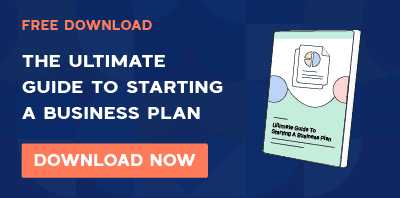I’ve always believed that the best entrepreneurs are also great readers. Many of my own business ideas came from books suggested by friends and mentors.
I still remember one night with a cup of coffee, completely absorbed in The Lean Startup. That book changed the way I tested ideas and solved problems. Later, Atomic Habits made me rethink how I built routines and stayed disciplined.
Each book I picked up gave me a new perspective, and together they shaped the way I work and grow my business.
So in this blog, I’m sharing my list of 12 best books for starting a business, along with the stories behind them and the people who suggested them—hoping they inspire your journey too.
12 Books I recommend to every entrepreneur (when starting a business)
Each of these books came to me at the right time and shaped how I think and work. More than summaries, I’ll share the lessons I took from them and why they matter.
So, let’s start with the first book:
1. Start with Why — Simon Sinek
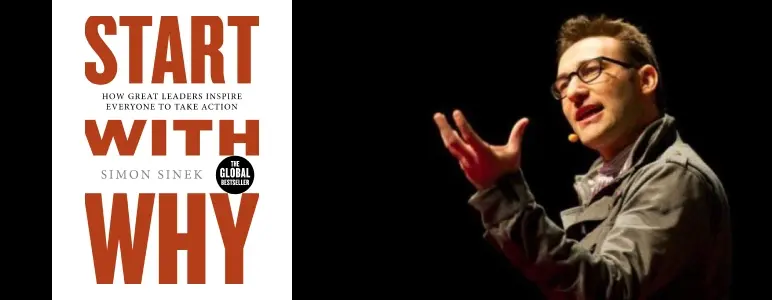
I first came across Start With Why when a friend shared Simon Sinek’s TED Talk with me. The book goes deeper into his idea of the “Golden Circle”—Why, How, and What.
Sinek explains that most businesses start by telling people what they do, but the most inspiring ones always begin with why they exist.
Through stories of Apple, Southwest Airlines, and even Martin Luther King Jr., he shows how a clear purpose can inspire loyalty and trust.
Reading it made me realize that I was often focused too much on features and numbers, while the bigger reason behind my work was getting lost. For me, this book helped put words to the real purpose of Upmetrics: Helping entrepreneurs bring clarity to their plans and turn their ideas into action.
On days when things got difficult, remembering that “why” gave me the motivation to keep moving forward.
This book is perfect for anyone starting a business who wants to connect with customers, inspire a team, or explain their idea in a way that matters. In today’s market, products can be copied, but your purpose cannot. That’s what will make people believe in you.
2. Zero to One — Peter Thiel
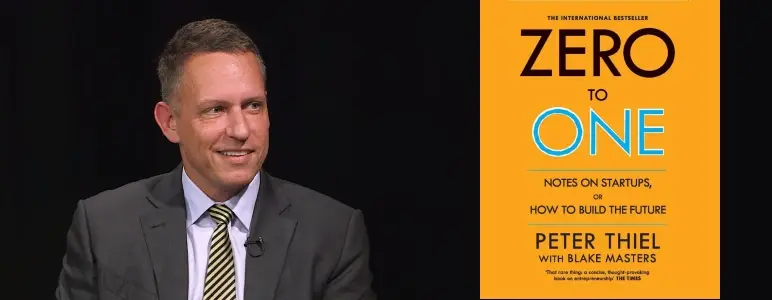
I picked up Zero to One when I was trying to figure out how my business could stand out in a crowded market.
Peter Thiel’s core idea is simple but powerful: Real progress happens when you create something truly new—going from zero to one—instead of copying what already exists.
The book is filled with lessons from his experience co-founding PayPal and investing in companies like Facebook.
What struck me was his challenge to avoid competition and focus on building something so unique that no one else can match it.
Here are a few lessons that stayed with me:
- Innovation is about creating, not repeating.
- The best companies build monopolies by being different, not by fighting rivals.
- Bold ideas carry more value than safe, incremental ones.
Reading it pushed me to think differently. Instead of trying to be “another tool,” I began focusing on solving problems in a way others weren’t addressing.
This book is perfect for entrepreneurs at the idea stage who want to build something original.
And today, when industries are crowded with copycats, Thiel’s message is even more important—lasting success comes from creating something new.
3. Atomic Habits — James Clear
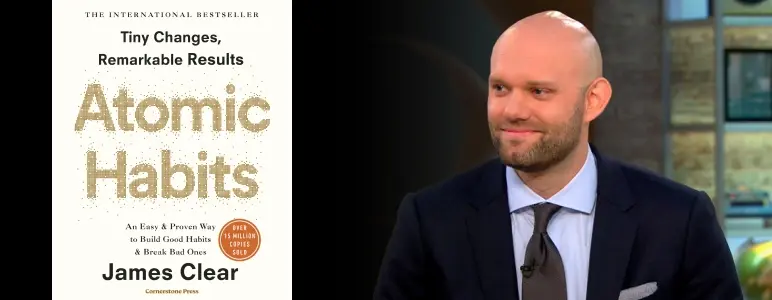
When I picked up Atomic Habits, I was looking for something practical to help me bring more discipline into my daily routine.
James Clear explains how habits are built and broken, using the four-step model:
Step 1: Cue > Step 2: Craving > Step 3: Response > Step 4: Reward
The book is full of methods you can apply right away, like habit stacking—linking a new habit to an existing one—or the 2-minute rule, which makes it easier to start small.
Reading this taught me that success isn’t about chasing huge goals but about building systems that make progress automatic.
What you’ll learn here is how to create good habits, get rid of bad ones, and make tiny improvements that compound over time.
This book is perfect for entrepreneurs who often feel overwhelmed by the size of their goals. Instead of being stuck on “grow the business,” you’ll learn to focus on small daily actions that actually move things forward.
For me, applying this changed how I worked on Upmetrics. I stopped stressing over big targets and started focusing on one useful habit at a time—writing regularly, talking to customers, and improving features.
Why it matters now is simple: In a world of distractions, habits give you consistency, and consistency builds results.
4. The $100 Startup — Chris Guillebeau
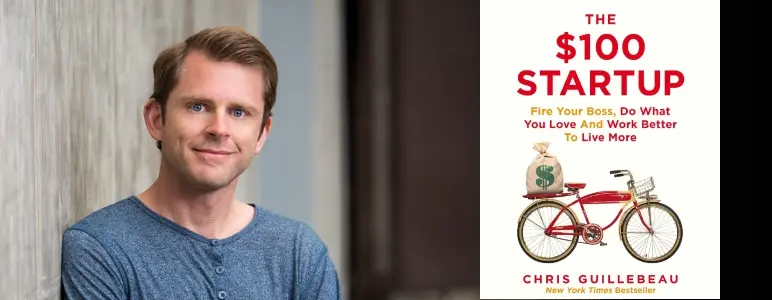
The first thing that caught my attention about The $100 Startup was its promise—you don’t need a lot of money to start a business.
Chris Guillebeau proves it by sharing 50 real stories of people who launched businesses with less than $100 and turned them into full-time work.
The book is full of inspiring examples: A travel photographer who sold guides online, a mattress shop owner who reinvented his business, and many others who built something valuable from skills they already had.
Chris calls this “micro-entrepreneurship”—using what you know and love to solve problems people will happily pay for.
Some of the most useful lessons for me were:
- Test ideas quickly instead of waiting for the perfect plan.
- Launch a simple version of your idea to check if it works.
- Focus on small, steady steps that build real momentum.
Reading this was a big reminder that I didn’t need perfect timing or big resources to begin. Progress happens when you start small, test, and improve along the way.
This book is perfect for anyone who feels stuck waiting to start. Why it matters now is that lean, flexible businesses are the ones that survive and grow in uncertain times.
5. The Lean Startup — Eric Ries
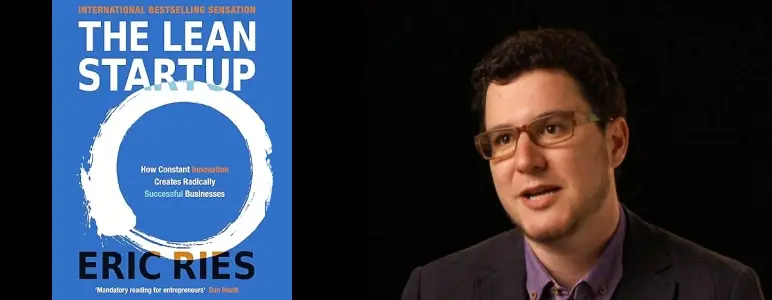
A mentor recommended The Lean Startup to me when I was overthinking and delaying my first product idea. I picked it up because I wanted to learn how to test ideas without wasting months of effort.
Eric Ries explains his method of “build, measure, learn,” which means instead of waiting for a perfect launch, you test early and improve along the way.
The book makes it very clear that building something nobody wants is the biggest failure. To avoid that, Ries suggests moving through a simple cycle:
Step 1: Build a minimum viable product (MVP)—the simplest version of your idea that can be tested.
Step 2: Measure how real customers respond, using data instead of guesses.
Step 3: Learn from the results. If it works, improve it. If not, adjust or pivot.
Reading this changed how I looked at starting anything new. Instead of spending months planning, I began to value quick experiments and learning in small steps. That shift saved me time, reduced stress, and gave me more confidence in making decisions.
And this isn’t just theory—companies like Dropbox and Airbnb famously used Lean Startup principles to test early ideas before growing into global businesses.
This book is perfect for early-stage founders, product creators, and startup teams.
Why it matters is that it teaches you that you don’t need every answer at the start—you just need to begin, test, and keep learning as you move forward.
6. The 4-Hour Workweek — Timothy Ferriss

The title of The 4-Hour Workweek caught my eye right away—it sounded impossible. How could anyone run a business in just four hours a week? But as I read it, I realized it’s not about avoiding work. It’s about working smarter, cutting out the unimportant, and building a life with more freedom.
Tim Ferriss calls this “lifestyle design.” He shows how to escape the traditional 9–5 routine by outsourcing repetitive tasks, automating systems, and focusing only on high-impact work.
The book is filled with case studies of people who built flexible businesses that allowed them to live and work on their own terms.
To make this happen, Ferriss explains his DEAL method—a step-by-step approach to design work and life with more freedom:
- Definition – Decide what you want and set clear goals.
- Elimination – Stop doing tasks that waste your time.
- Automation – Use systems or outsourcing so work continues without you.
- Liberation – Break free from being tied to an office or fixed routine.
The biggest lesson for me was to stop confusing “being busy” with “being productive.” Once I focused only on the work that mattered, I felt lighter, more focused, and more in control of my time.
This book is perfect for entrepreneurs, freelancers, or anyone stuck in endless work. Why it matters is because real success isn’t just about money—it’s about having the freedom to live life on your own terms.
7. $100 Million Offers — Alex Hormozi

A friend in my network recommended $100 Million Offers and told me, “This book will change how you think about selling.” He was right.
The title sounds bold, but Alex Hormozi delivers on his promise of teaching how to create offers so good that people don’t want to say no.
The heart of the book is the value equation:
Value = (Dream Outcome × Perceived Likelihood of Achievement) ÷ (Time Delay × Effort & Sacrifice)
In simple words, you can make an offer better by promising a bigger result, showing proof it will work, making it faster to achieve, and reducing the effort for the customer.
Hormozi also talks about creating a Grand Slam Offer—an offer so valuable compared to its price that it feels obvious to accept. He shows how to use guarantees, bonuses, and clear messaging to make products stand out, even in crowded markets.
What stuck with me most was shifting my focus from lowering prices to increasing value.
I also appreciated that Hormozi doesn’t stay vague—he shares formulas, real examples, and practical steps you can use immediately. That combination made the lessons clear and easy to put into action.
This book is written for entrepreneurs, coaches, and consultants, but the truth is, anyone selling something will benefit. It matters because even a great product can fail, but a strong offer is what makes people actually say “yes”.
8. The E-Myth Revisited — Michael E. Gerber
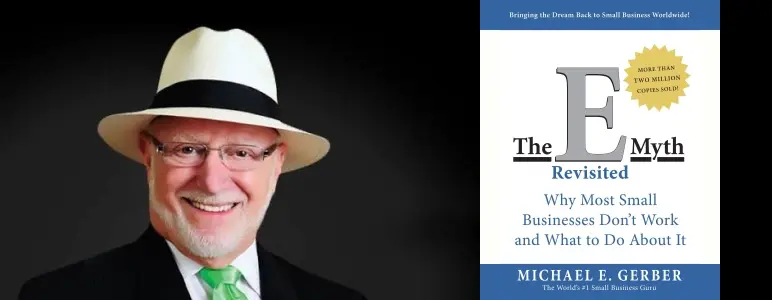
I read The E-Myth Revisited after hearing so many founders say it completely changed the way they ran their businesses. Michael Gerber tackles one of the biggest mistakes entrepreneurs make—the “Entrepreneurial Myth.”
He explains that most small business owners aren’t really entrepreneurs at heart; they’re skilled technicians who know their craft but struggle when it comes to running and growing a business.
Gerber explains that every founder plays three roles:
- The technician (doing the hands-on work)
- The manager (organizing and keeping things in order)
- The entrepreneur (thinking about growth and vision)
The trouble starts when the owner spends all their time as the Technician, stuck in daily tasks, instead of stepping back to design systems that let the business scale.
What really stood out for me was Gerber’s focus on systems. He shows how building processes and repeatable workflows allow a business to grow without everything depending on the founder.
It made me realize that success isn’t about working harder—it’s about building something that works without you being involved in every detail.
This book is best for small business owners, freelancers, or early-stage founders who feel overwhelmed by daily tasks.
It matters because a business built only on you will eventually burn you out, but a business built on systems will last and grow.
9. The 22 Immutable Laws of Marketing — Al Ries & Jack Trout

This book was suggested to me by a colleague who said, “If you want to understand the basics of marketing, start here.” When I read The 22 Immutable Laws of Marketing, I quickly understood why it’s considered a classic.
Al Ries and Jack Trout explain 22 rules that show why some brands dominate while others fade away.
The book makes it clear that marketing isn’t just about products—it’s about perception. That’s why companies like Coca-Cola, Apple, and Nike lead their markets.
They claimed a position in the customer’s mind early, instead of trying to prove they were “better” later.
Here are the five laws that stood out to me:
- Law of Leadership – it’s better to be first than to be better.
- Law of Perception – marketing is about how people see you, not the product itself.
- Law of Focus – owning one word in the customer’s mind is more powerful than trying to stand for everything.
- Law of Category – if you can’t be first in one category, create a new one where you can be first.
- Law of Line Extension – stretching your brand too far can weaken it.
What I loved is how simple these laws are, yet how often businesses ignore them.
It reminded me that success in marketing comes from clarity, focus, and positioning—not from trying to do everything.
This book is a must-read for entrepreneurs, marketers, or anyone trying to stand out in a crowded space.
It matters because markets today are even noisier, and these laws remind you that clarity and positioning often decide who gets remembered and who gets ignored.
10. Purple Cow — Seth Godin
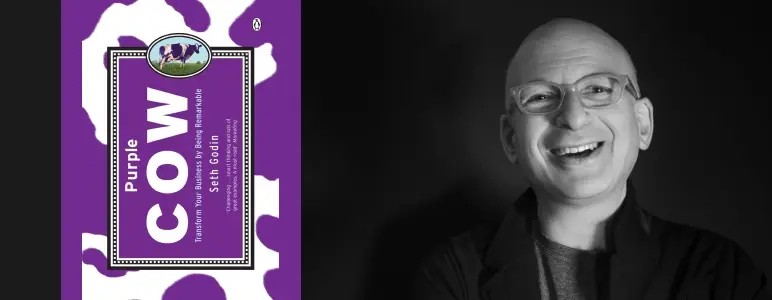
The idea behind Purple Cow is simple but powerful—ordinary products don’t get noticed.
Seth Godin explains it with a clever image: Imagine driving past a field of cows. At first, you notice them, but soon they all look the same. Now picture one cow painted purple—you’d slow down, take a photo, and probably tell your friends. That’s what a remarkable product feels like.
Godin shows that average products, no matter how much you spend on marketing, usually get ignored.
The businesses that grow are the ones that create something so remarkable people can’t help but talk about it.
A few lessons that stuck with me were:
- Remarkability wins – products must be unique enough to spread by word of mouth.
- Safe is risky – trying to please everyone means you stand out to no one.
- Design for the niche – focus on early adopters who will notice and share your idea.
- Marketing is baked in – it’s not an add-on; it starts with the product itself.
What I loved most is how this book makes you question if your product is truly different or just another brown cow in the field. That thought alone can spark fresh ideas.
This book is perfect for entrepreneurs, marketers, and creators who want to stand out. It matters because in a sea of choices, only the remarkable get remembered.
11. Crushing It! — Gary Vaynerchuk

I chose Crushing It! after hearing how many entrepreneurs found it useful for building their brands. When I started reading, what struck me was Gary Vaynerchuk’s style—direct, energetic, and full of urgency.
He doesn’t waste time—he dives straight into showing how social media can completely change the way you build a brand or business.
What I liked most is how Gary breaks it down platform by platform, showing exactly how people used them to grow step by step:
- Instagram – Share your story with visuals and consistency.
- YouTube – Create long-form content that builds trust and personality.
- Facebook – Use groups and pages to build communities around your idea.
- Podcasts – Connect directly with listeners in a personal way.
The stories are proof that you don’t need to be special to succeed—you just need to stay consistent and be yourself.
Reading it gave me this one thought: If they can do it, so can I. That’s what makes the book fun—it’s not just advice, it’s motivation mixed with real examples.
This book is perfect for anyone who wants to build a brand or business online. It matters because the world’s attention is already on these platforms, and learning how to use them is like learning the new language of opportunity.
12. How to Win Friends and Influence People — Dale Carnegie
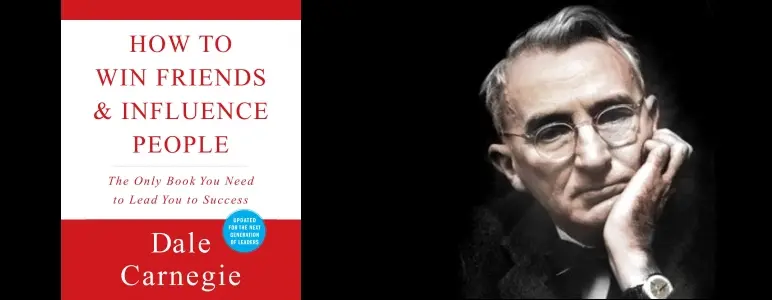
I read How to Win Friends and Influence People because many people said it’s a classic for anyone who works with others.
Even though it came out in 1936, I was surprised by how easy and helpful the advice still is.
Dale Carnegie’s main idea is clear: To succeed, you need to know how to get along well with people.
The book is split into lessons on how to handle people, make them like you, win them to your way of thinking, and lead without creating resistance.
The advice is straightforward but powerful. A few tips that stayed with me were:
- Don’t criticize or complain
- Give honest appreciation
- Smile often
- Remember names
- Listen carefully
What I liked most was how the book made me think about my own habits. I began trying small things, like listening better and showing appreciation, and I quickly noticed how it improved conversations.
And I’m not alone in this—Warren Buffett has called this the most important book he has ever read. He even took Carnegie’s course early in his career and still displays the diploma in his office.
This book is great for entrepreneurs, managers, or anyone who wants better connections. It matters because good relationships often open the doors to the best opportunities.
How I read these books for real results (and you should too)
Most people read books, enjoy the ideas for a while, and then move on to the next one. The problem is, nothing really changes. I didn’t want that to happen to me, so I built a simple way to actually use what I read.
- I don’t binge-read business books. I pick one based on the stage I’m in. For example, when I was just starting, The Lean Startup made sense. Later, when I was looking at building systems, The E-Myth Revisited was the right choice.
- I apply lessons right away. If a book gives me an idea, I try it the same week. After reading The Lean Startup, I didn’t just nod my head—I built a small version of an idea to test with real people. That made the book stick.
- I combine reading with tools. If a book talks writing a business plan, I use business planning software or simple checklists to put it into practice. This way, the book doesn’t stay in my head—it becomes part of how I work.
That’s the difference: Books only matter if you use them.
The bottom line
Reading is one of the best investments you can make as an entrepreneur. But books only create change when you put their lessons into practice. A book won’t build your business for you—action will.
Start with one idea, apply it, and let it guide your next step. Even small actions can lead to big results over time.
And when it’s time to bring all those ideas together, having a clear business plan makes the difference. Tools like Upmetrics can help you turn what you’ve learned into a structured plan, so your business grows on more than just inspiration.



